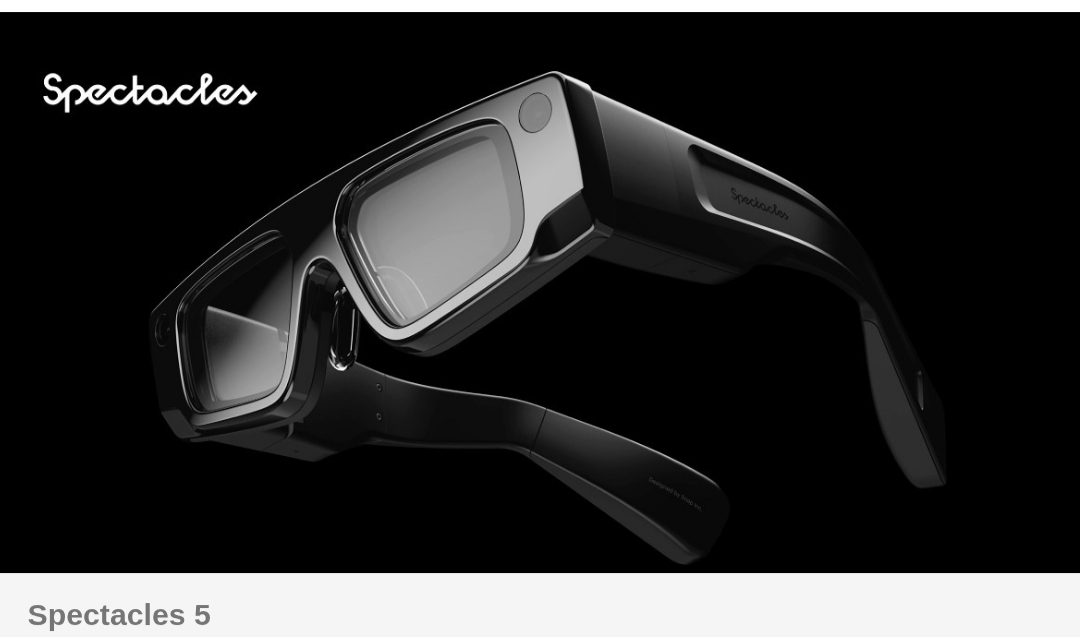Snap to Launch First Consumer AR Glasses 'Specs' in 2026 with See-Through Lenses and AI Integration
Snap Inc. will release its first public AR glasses, "Specs," in 2026. Announced at AWE 2025, the glasses will feature see-through lenses, AI integration, and powerful computing capabilities.
Snap Inc. is officially preparing to enter the consumer augmented reality market with its first public AR glasses, set to launch in 2026 under the name "Specs." This marks a major shift from the company's previous approach with Spectacles 5, which were limited to developers through a $99/month subscription.
The announcement was made at the Augmented World Expo (AWE) 2025 in Long Beach, California, where Snap confirmed that Specs will be its first AR glasses available to the general public.
> “We believe the time is right for a revolution in computing that naturally integrates our digital experiences with the physical world,” said Evan Spiegel, CEO and co-founder of Snap Inc. “We can’t wait to publicly launch our new Specs next year.”
Spiegel went as far as to call Specs “the most advanced personal computer in the world,” a bold statement that sets high expectations for the product.
While technical details remain under wraps, Snap shared that the Specs will feature see-through lenses, enabling users to overlay digital experiences onto the physical world. These next-generation glasses are the result of more than $3 billion in R&D investment over the past 11 years, underscoring Snap’s long-term commitment to AR innovation.
Alongside the Specs announcement, Snap revealed significant upgrades to its Snap OS, including deep AI integrations with OpenAI and Google Cloud's Gemini, enhancing the intelligence and contextual capabilities of AR experiences.
For developers, Snap also introduced powerful new tools, including:
Fleet Management App
Guided Mode
Guided Navigation
These are designed to streamline the creation of location-based AR experiences.
Another exciting development is the upcoming WebXR support, enabling immersive AR experiences directly in web browsers. Snap is also teaming up with Niantic Spatial to incorporate its Visual Positioning System (VPS) into Lens Studio and Specs, helping to create an AI-powered global AR map.
With all these announcements, Snap is clearly aiming to position itself at the forefront of next-generation computing—where AR glasses could become the new smartphone.






Post a Comment